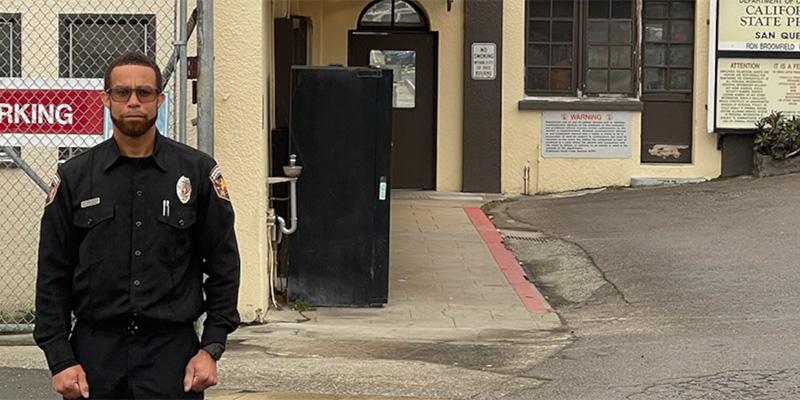When San Quentin was on lockdown in the Spring of 2022 because of the pandemic, I searched for ways to keep learning, healing, and unraveling my distorted, yet, entrenched belief system. In the absence of live self-help groups, I turned to the PREP correspondence courses that focus on various aspects of personal development including criminal thinking, insight, victim awareness, anger management, and domestic violence.
As I progressed through the lessons that arrived in the mail, a question from the domestic violence module gave me pause, causing me to dig deeper into my past motivations. The question posed was, “Do you think psychological abuse is more devastating than physical?” After much soul-searching, I answered in the affirmative with confidence and clarity. These years of incarceration have allowed me to educate and enlighten myself on the many subtleties, nuances, pathologies, and intentions behind intimate partner violence.
I recognize that physical abuse is an arrestable offense, which carries legal, as well as social consequences. Yet, this doesn’t make psychological abuse any less reprehensible, uncivilized, or devastating. It is certainly an assault on a victim’s humanity, dignity, well-being, and self-esteem. These kinds of wounds linger and fester long after the scars from a physical attack fade away. It is a shameful reality that I’ve employed these tactics of wanton mental abuse without truly owning my cruel objectives to tear my partner down so that she was easier to control and manipulate.
In the final days of our marriage, as I perceived the balance of power shifting toward J’s favor, I grew increasingly panicky, unsettled, resentful, and desperate. I was restless, as I drove around bringing on my dark, but unfounded self-pity. I wasn’t supposed to feel this way! One entitlement of male privilege says I have a right not to feel hopeless or defeated. As J. slipped away, as my containment strategies failed, as I avoided processing my true feelings, my irrational instinct was to reach into my toolbox for a solution. Unfortunately, it has historically been a shallow, unhelpful resource because it only held two tools: impulsivity and violence.
I once saw a movie titled, Gaslight, where a husband deceives his wife by causing the gaslights in the home to dim and flicker. When his wife complains, he assures her that she imagines things, he is certainly not playing games with the lights! His dishonesty was breathtaking and while his offenses were nonphysical, his dismissive attitude, denials, minimalizations, and condescension were abusive in nature. I’m as guilty as this fictional husband because I too was gaslighting J., manufacturing her reality: “crazy-making”.
I chose the tactic of the shared household income and J’s insecurities. I cut her off, restricting her access to funds and resources, which I knew carried the means of her independence and plans for a future that didn’t include me. My selfish withholding scheme was designed to cultivate her reliance on me and restore my sense of power and control. My petty methods, while lacking integrity, held a certain disgraceful logic.
As our marriage faded, J’s priority remained where it had always been – keeping a roof over our three daughter’s heads. She wanted a (better) bigger life for her girls – much more than the chaos, dysfunction, and brokenness of her own inconsistent childhood. I exploited this intimate knowledge; thereby, advancing my cause, handing her a script of financial access, promising independence, changes, equality, and even an amicable separation. But my assurances were merely the equivalent of flickering lights.
Instead of making decisions that would honor everyone’s dignity, I trusted that J. would mute her own personal survival instinct for a greater good: hope for her daughter’s well-being and a consistent, unbroken family. Yet, this weave of false security was thick smoke and crooked mirrors. The irony is that I was more scared, frustrated, and hurt than J. I saw another failure, defeat, and shame – a loss I couldn’t withstand with grace. Before this crisis, I wasn’t even a family man, I was just a man who happened to have a family. Now I had the nerve to want to fight\ and protect the institution of marriage, an idea I had betrayed and shown nothing but contempt for.
There is a secret to unimaginative patriarchy. Spoiler alert: it’s a house of cards. I was the dependent one, but I disguised my man-child status behind a bluff, denial, machismo, and ultimately, acute rage. I was threatened by J’s inner strength, prudence, and level of responsibility which stood in sharp contrast to my selfishness, weakness, and possessiveness. Yet, in the spirit of a gaslighter, I denied I feared abandonment, and that I couldn’t hold my own hand and emerge from a life challenge operating in the best interest of J’s boundaries.
I think about this PREP question, “Do you think psychological abuse is more devastating than physical?”, and its dubious qualification, since all abuse is devastating and immoral. As these assignments tend to do, they bring to mind an unfair question that misses the point behind my tragic choices. It shouldn’t be, why didn’t J. just leave? No, the better question is, why didn’t I just let her go?











